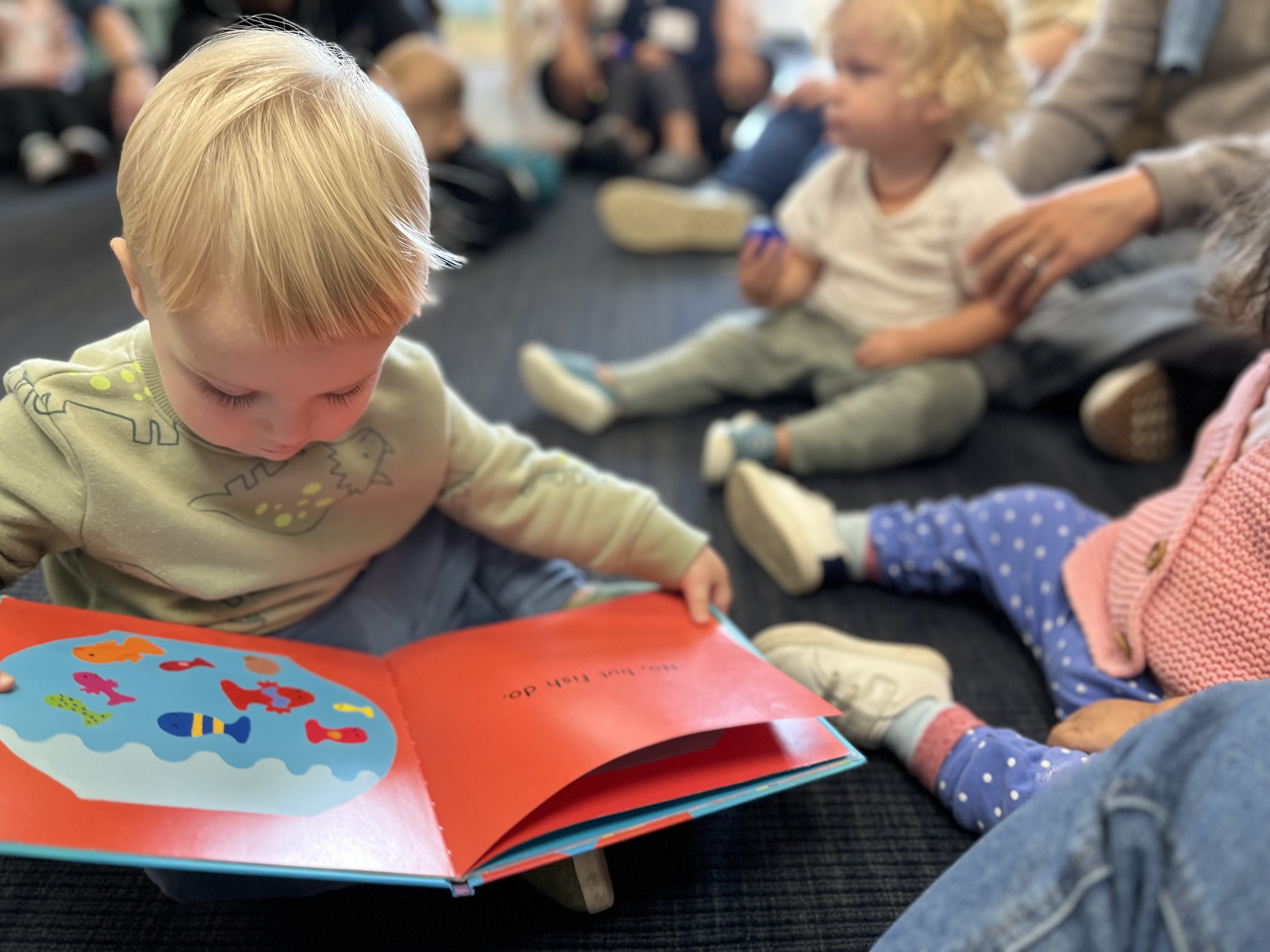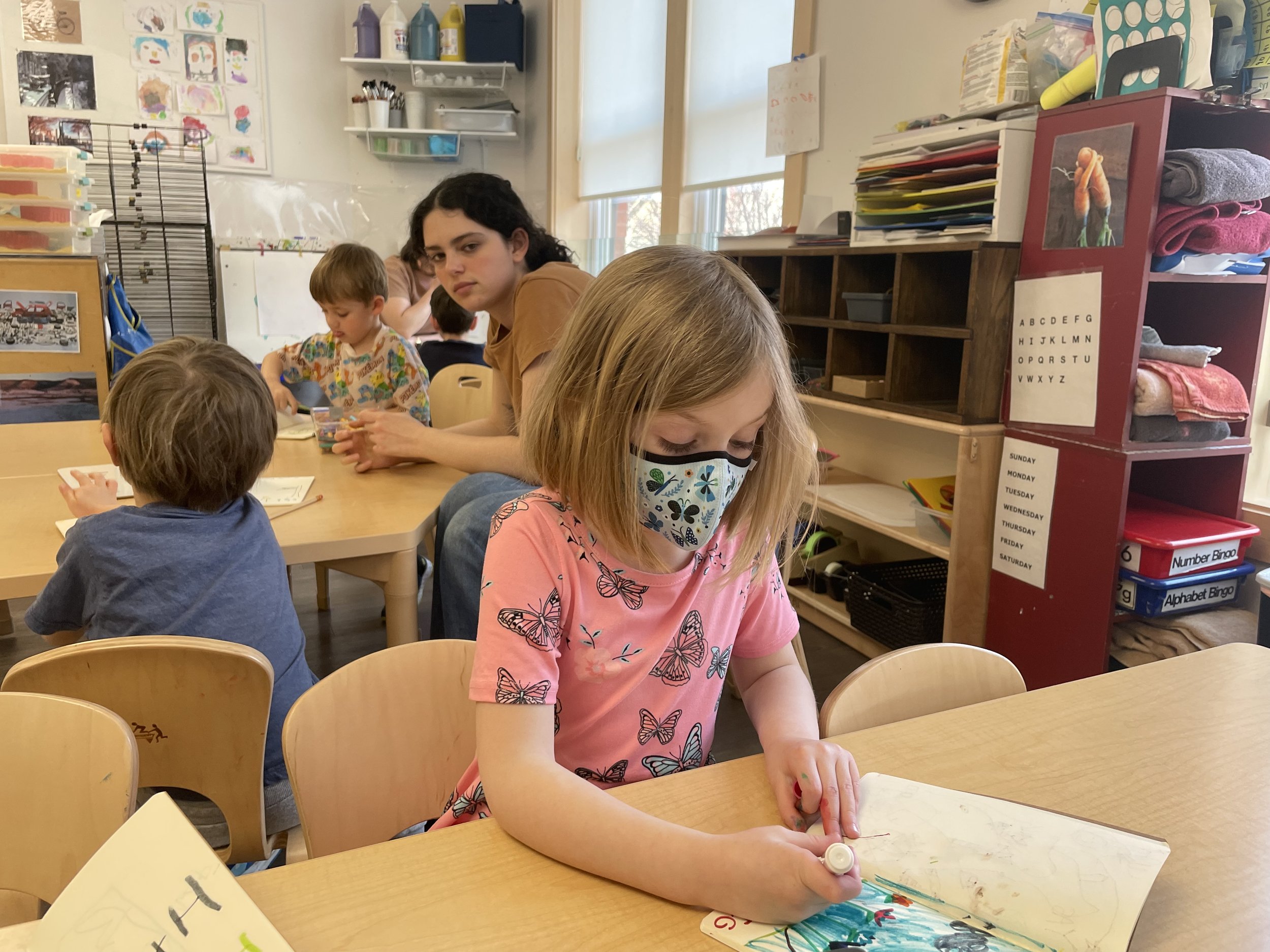2022-2023 School Year
To the Wonderful Families of Park West Cooperative,
Our school year has officially come to an end. I have spent lots of time hugging teary eyed parents outside school over these last few days. Parents are joyous, proud, grateful, and in disbelief- how is it already the end? They are growing so fast! And some are asking, what will it be like now that our time at Park West is over?
Each parent and child approaches and reacts to changes differently. Some parents reported that their child was crying for weeks about not wanting school to be over. Other kids express joy and excitement about what is coming next for them. And then others seemed unphased by the changes, like they didn’t even realize what the last day of school really meant. For many kids, this is true, they may need a day or week or a month to realize that it really is over and what that means and only then will you begin to see how this change is impacting them.
The ending of this school year has me thinking a lot about expectations and what we do when our expectations are not met and how we react when something exceeds our expectations. As parents, we can’t help but have expectations of our children. Maybe you thought your child would feel sentimental and celebratory, posing for pictures outside with you but instead they were mad that you didn’t let them eat icecream for breakfast and that seems to be all they are thinking about. Maybe you thought your child would be better at sharing by this time in the year or that they would be finally out of diapers. All of these natural expectations are opportunities for us to remember that we are really just along for the ride with our kids. Even at 2, 3, and 4 years old, they are already a whole person who perceives the world and reacts to it through their own lens and experience. Many of our goals and expectations for our children reflect really positive ideas of how we want our children to grow and the type of person we hope they will become. But in reality, our children’s behaviors and reactions are less a reflection of who they will become and more a communication of what they feel in that moment and what support they need to move through the experience and build new skills.
Our children's behavior is communication, plain and simple. But how hard for us, as parents, when those communications don’t match our adult expectations or they don’t easily draw us into relationship with our children but instead frustrate or confuse us. My advice during this big transition is: get curious. Be an observer, a commenter, and offer a reflection back to your children to help them gain awareness of how they feel and what their behavior is telling you about what they need. Rather than digging into an agenda to fix the problem (negative behavior, big feelings, regression) just notice it, try to provide language to help your child understand what you see and then let the repair happen on it’s own, I promise it will. Offer your child generosity, knowing that regressions and difficult behavior are really just their best way of telling you how they feel. Remembering this can sometimes make these moments easier to handle and the generosity will pay off when they see that you understand what’s underneath their behavior and that you are there to support them during this big change in routine.
This practice is really my best advice in life too, not just when it comes to parenting. What do we do when the people around us don’t act the way that we expect them to? What happens when we are hurt or disappointed by each other, when we don’t feel seen or understood? Part of being in a community with other parents and being part of a cooperative school means that along with the community, connection, support, and collaboration; there will inevitably be moments of conflict, misunderstanding, and disappointment. So how do we address these instances as a school and as a community? Here is my advice: get curious and be generous. In any experience I have had over the years with a frustrated parent or a disappointed teacher, I have found that my solutions and opinions are never as helpful as my curiosity. I always want to learn more, to understand the context around someone's feelings and get clarity on their expectations. The more I can really, truly listen to the other person, the easier it is to be empathetic to their situation, even if we disagree. And generosity. I cannot say it enough. Each one of us, child and adult deserves and requires a generous spirit. When a child, parent, or teacher does or says something that surprises me, I think first of the most generous understanding I can offer them. After all we are each imperfect and each of us doing the best that we can with the skills and knowledge that we possess. At Park West I believe that our school thrives when we can each adopt these values of curiosity and generosity towards one another.
For everyone who is returning next year, I look forward to welcoming you back with curiosity and generosity in the fall. And for those who are saying goodbye to Park West, please know that we will always be your community and we welcome the chance to celebrate life with you and support you in times when you need us, so please stay in touch. I wish you all sunny summer days with your children filled with adventure, joy, curiosity, and generosity. See you again soon!
With warmth and gratitude,
Melissa Boshans
(she/they)
Director of School, Park West Co-op







